iPad Air (2020) vs iPad Pro (2020): which iPad is for you?
Go light or go 'pro'? There’s no doubt as to which users these Apple tablets are for, so which suits your needs best?

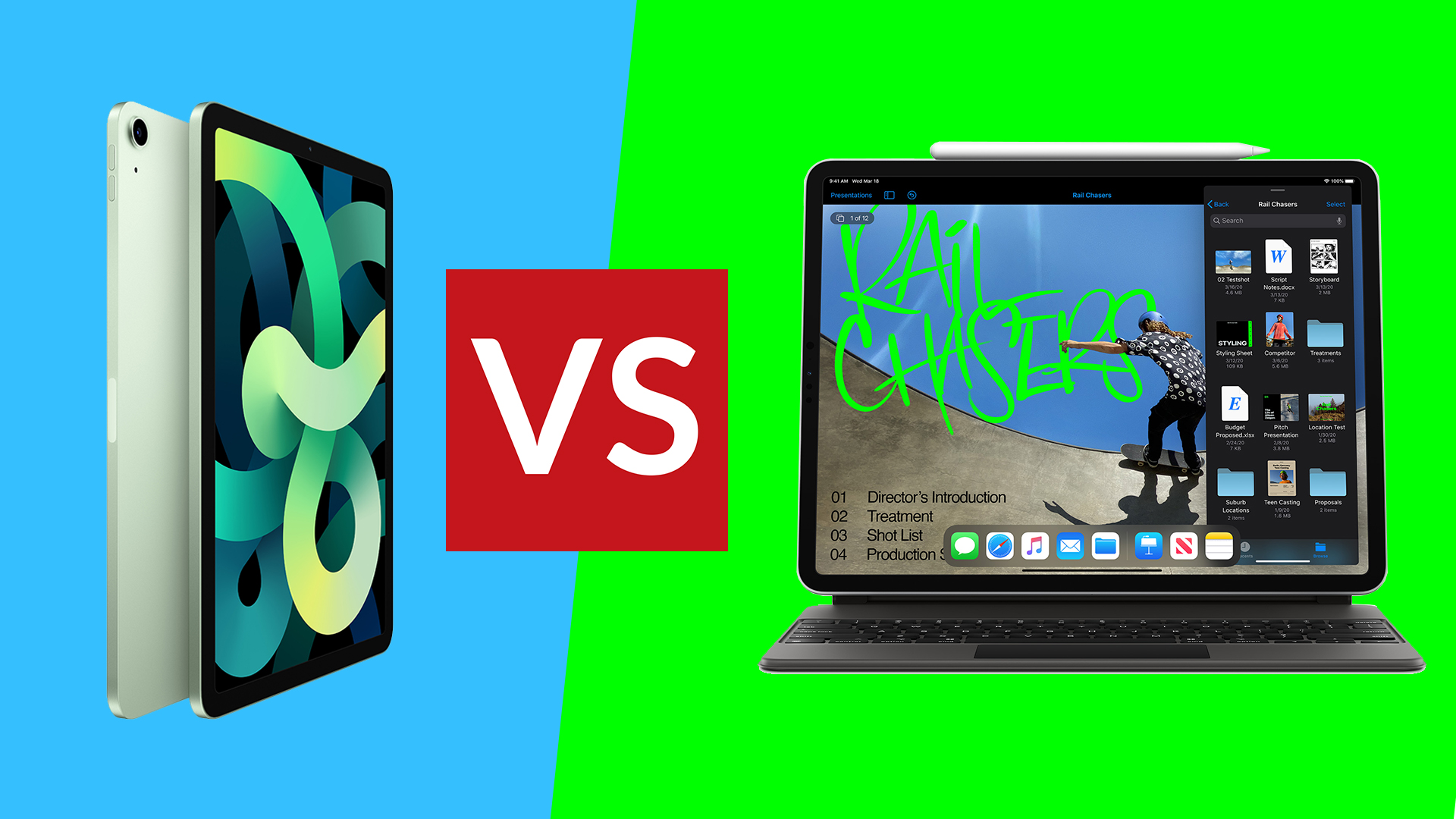
Get all the latest news, reviews, deals and buying guides on gorgeous tech, home and active products from the T3 experts
You are now subscribed
Your newsletter sign-up was successful
The iPad Air (2020) couldn’t very well let the iPad Pro (2020) have all the glory in our list of the best tablets. The update to Apple’s top-end tablet, released in March 2020, came strutting in with a few key updates for both its 11-inch and 12.9-inch models. Naturally, so did the Air when it came out in October, touting massive upgrades from its predecessor. Both have since been replaced in iPad Air (2022) and iPad Pro (2021) releases, offering yet more.
All these Apple tablets come with powerful specs inside as well as new and improved features. The two iPad Pros, for example, boast two rear cameras as well as a LiDAR scanner, which can be used for everything from advanced 3D scanning to AR gaming. Meanwhile, the iPad Air (2020) is rocking Apple’s A14 chip, which delivers impressive processing and graphical power in the same design as the iPad Pro, but at a lower price.
So now, we’re left with the question: which model to choose, and which gives you the best value for your money? After all, whichever one you choose, you’ll certainly be paying a lot of money for it. We’re here to help you find out.
You'll find the best prices for these tablets on this page, but don't forget to check out our round-ups of the best iPad deals, the best iPad Pro deals and the best iPad mini deals for all the latest offers!
iPad Air (2020) vs iPad Pro (2020): Price
Without knowing anything about these tablets, you might assume that the iPad Air (2020) would be the cheapest of the three, and you would be right. This 4th generation iPad Air will set you back £579/$599/AU$899 for 64GB configuration and £729/$749/AU$1,129 for the 256GB one. But that’s only for the Wi-Fi model. If you’d rather have the Cellular model, you’ll be paying a bit more at £709/$729/AU$1,099 and £859/$879/AU$1,329 for the 64GB and 256GB respectively.
If that’s already a bit much, especially next to the iPad (2020), then the prices on the iPad Pro (2020) might take your breath away. The iPad Pro 11-inch starts at £769/$799/AU$1,329 for the 128GB Wi-Fi model. A fully kitted out model with 1TB storage space and Cellular connectivity will cost you a pretty penny – a whopping £1,419/$1,449/AU$2,429. That’s more expensive than the base model of the MacBook Pro 13-inch M1.
Pricier still is the iPad Pro 12.9-inch, which starts at £969/$999/AU$1,649 for the 128GB Wi-Fi model and at the premium £1,619/$1,649/AU$2,749 for the highest specced 1TB Cellular model.
Get all the latest news, reviews, deals and buying guides on gorgeous tech, home and active products from the T3 experts
Both iPad Pro (2020) models are pricier than many of the best laptops out there, which is perhaps why Apple is touting them as “your next computer.” Only, they’re a lot more portable and have impressive cameras than a laptop. On the downside, you’d have to shell out at least £299/$299/AU$499 more for the Magic Keyboard to get the traditional laptop keyboard/trackpad setup.
iPad Air (2020) vs iPad Pro (2020): Design and features
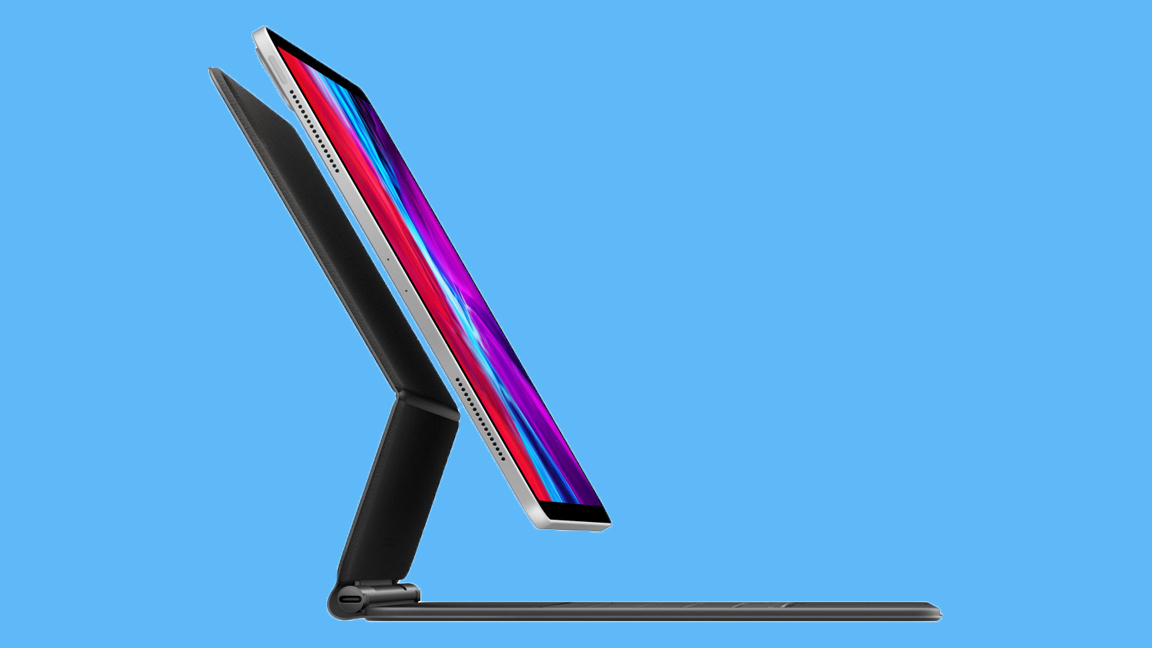
The iPad Air (2020) is feature-rich in its own right and has gone through a bit of a design transformation from the previous generation with a bigger screen (owing to its much thinner bezels) and a more powerful camera.
These upgrades let the iPad Air (2020) occupy the same premium sphere as the two iPad Pro (2020) models, albeit at the lower end of the spectrum. That’s because it lets it tick a few things on the Pro list. Those things include the bigger 10.9-inch Liquid Retina display, which is only 0.1 inch smaller than the 11-inch Pro, the 12MP wide rear camera with ƒ/1.8 aperture, compatibility with the 2nd-gen Apple Pencil and Magic Keyboard, 4K video recording and 1080p slow-motion recording capabilities, Wi-Fi 6, and Bluetooth 5.0 connectivity.
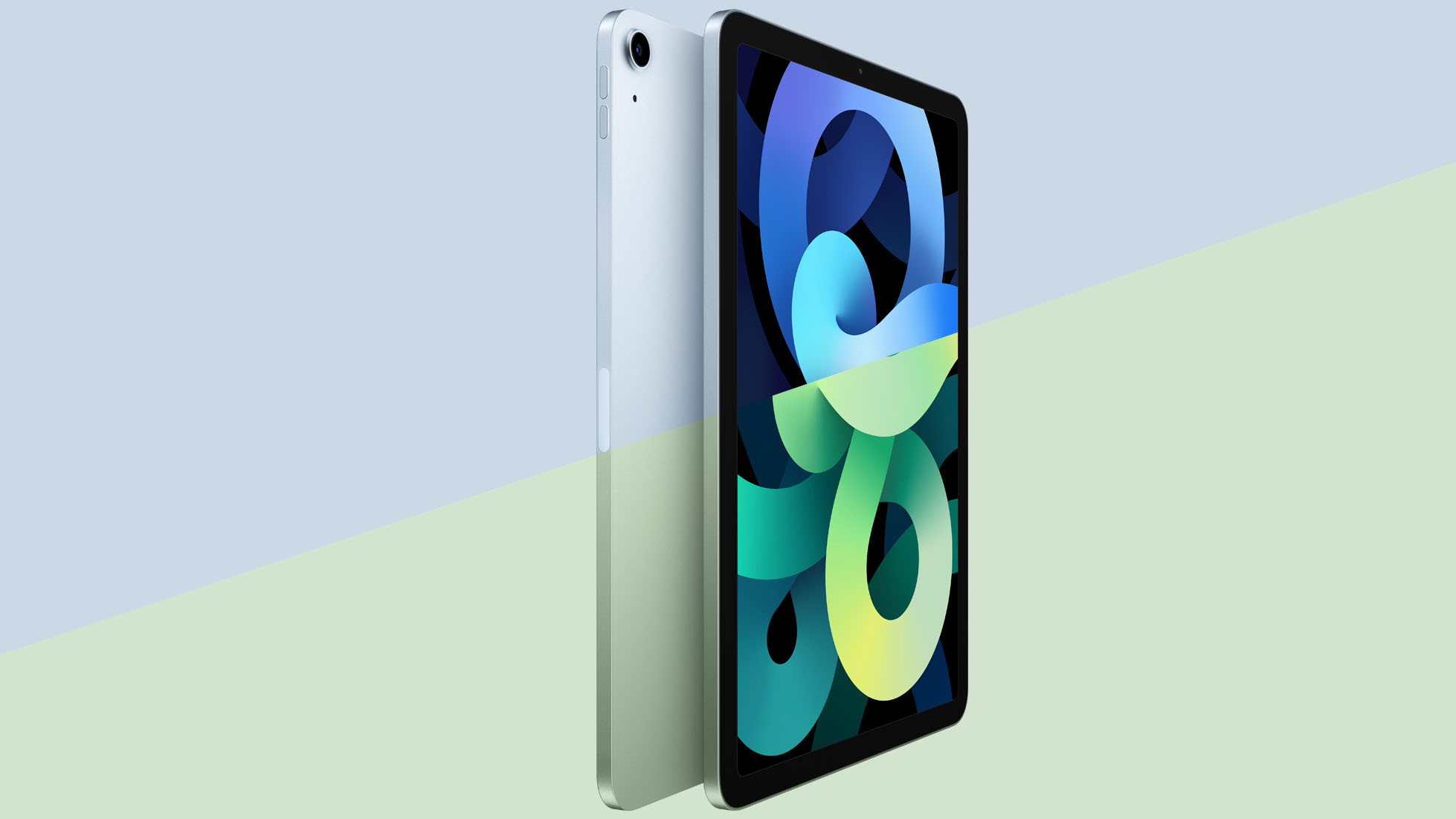
The Air does have one advantage over the Pros in terms of design: whereas the Pros only come in silver and space grey, the Air adds rose gold, green, and blue to its palette, giving users a total of five shades. Those who want to get away from the same neutral colour that many devices come in will certainly adore these three fun colours.
Of course, for that lofty price of entry, the two iPad Pro (2020) models do have advantages over the Air when it comes to design and features. True to their moniker, these tablets come with a display with 600 nits of brightness (about 20% more than the iPad Air) and ProMotion technology, which delivers up to 120Hz refresh rates for butter-smooth viewing.
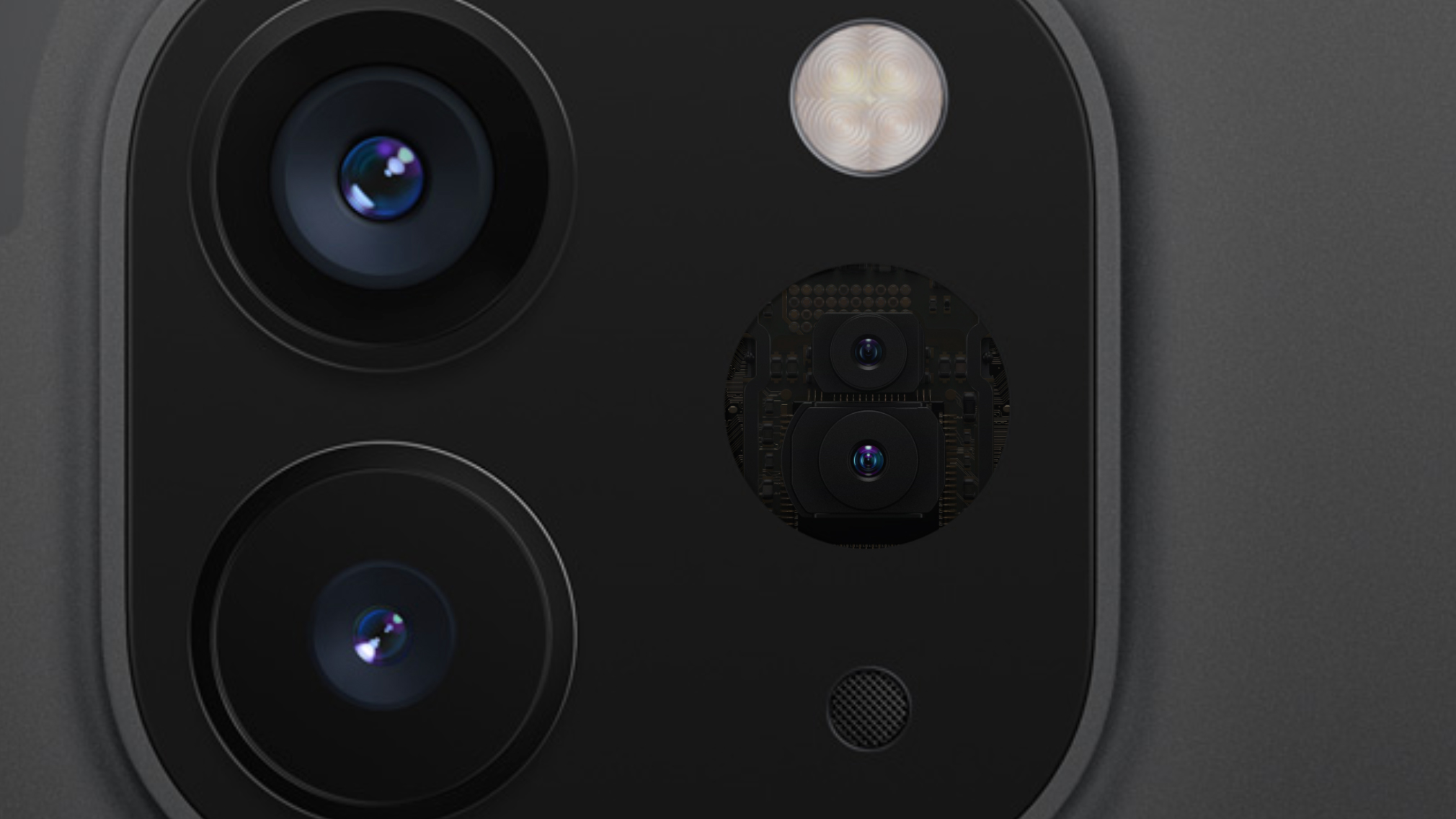
Other pro features are a second rear camera that’s an ultra wide angle with 10MP and ƒ/2.4 aperture, brighter True Tone rear flash, a TrueDepth front camera with portrait lighting as well as Animoji and Memoji support, and a Face ID (as opposed to the Air’s Touch ID login). Both models also come with a LiDAR Scanner, which future-proofs them for more applications later on.
What do these differences mean for you? Well, the iPad Air (2020) may have some pretty nifty features that make it a great accessory for creative professionals as well as casual users who crave better features on their tablet. However, it’s the iPad Pro (2020) that fits the bill for professionals.
iPad Air (2020) vs iPad Pro (2020): Specs and performance
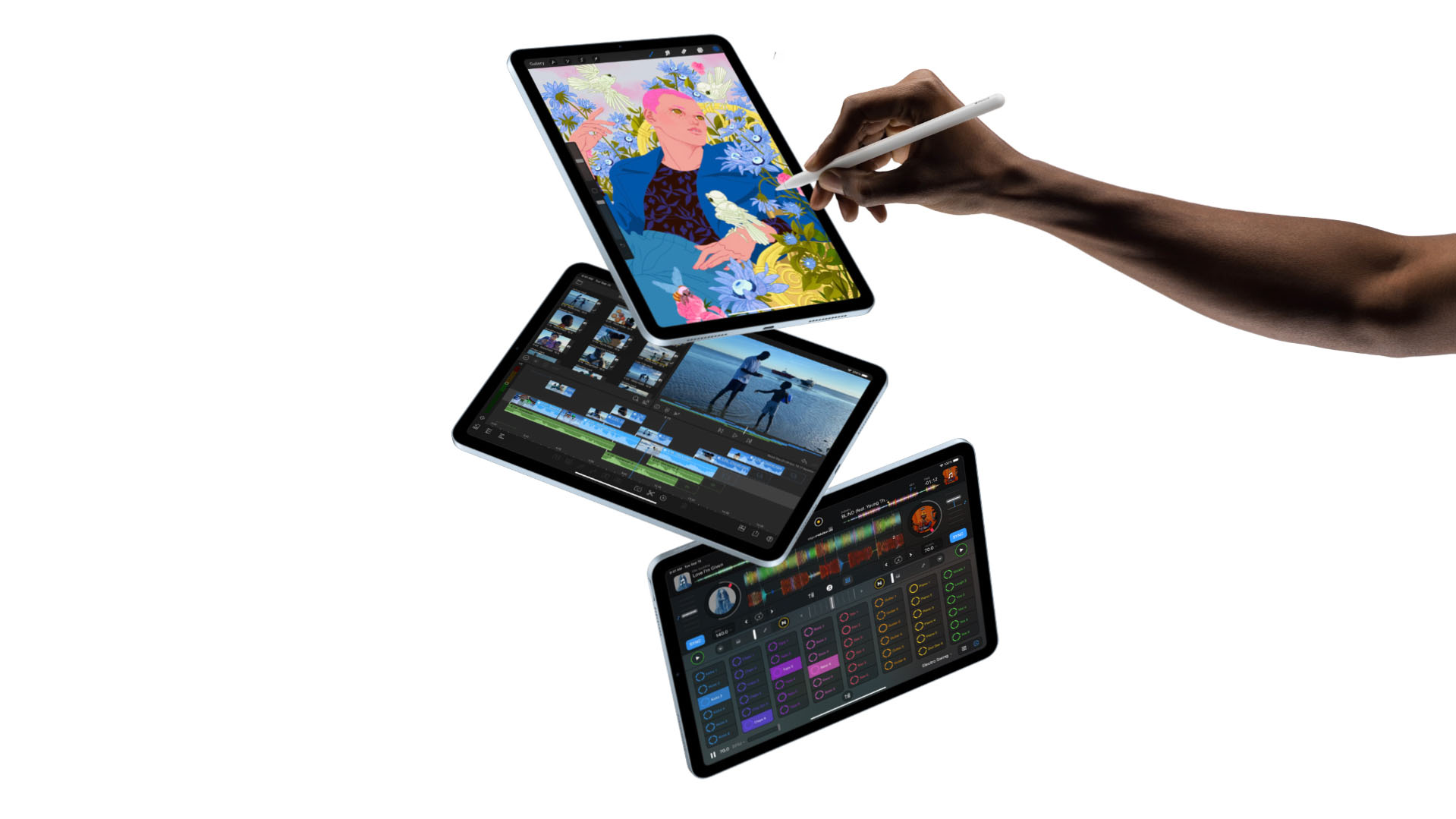
When it comes to their internals, the iPad Air (2020) has Apple’s latest A14 chip. The iPad Pro (2020), on the other hand, has the A12Z, a variant of the A12.
Does that mean then that the Air runs faster and more efficiently than the Pros? Not necessarily. The A14 does have a faster clock speed of 1.80GHz (3.01GHz boosted) and is based on newer and more advanced tech. But, while the A12Z is has a slower clock speed of 1.59GHz (2.49GHz boosted), it also has an eight-core CPU (compared to the A14’s 6 CPU cores). More cores mean it has a better multi-core processing performance – a boon for video editing, gaming, and other more complex tasks.
The A12Z eight-core GPU (next to the A14’s four-core GPU) makes it an even better chip for creative professionals looking to edit and render their videos and designs on their tablet.
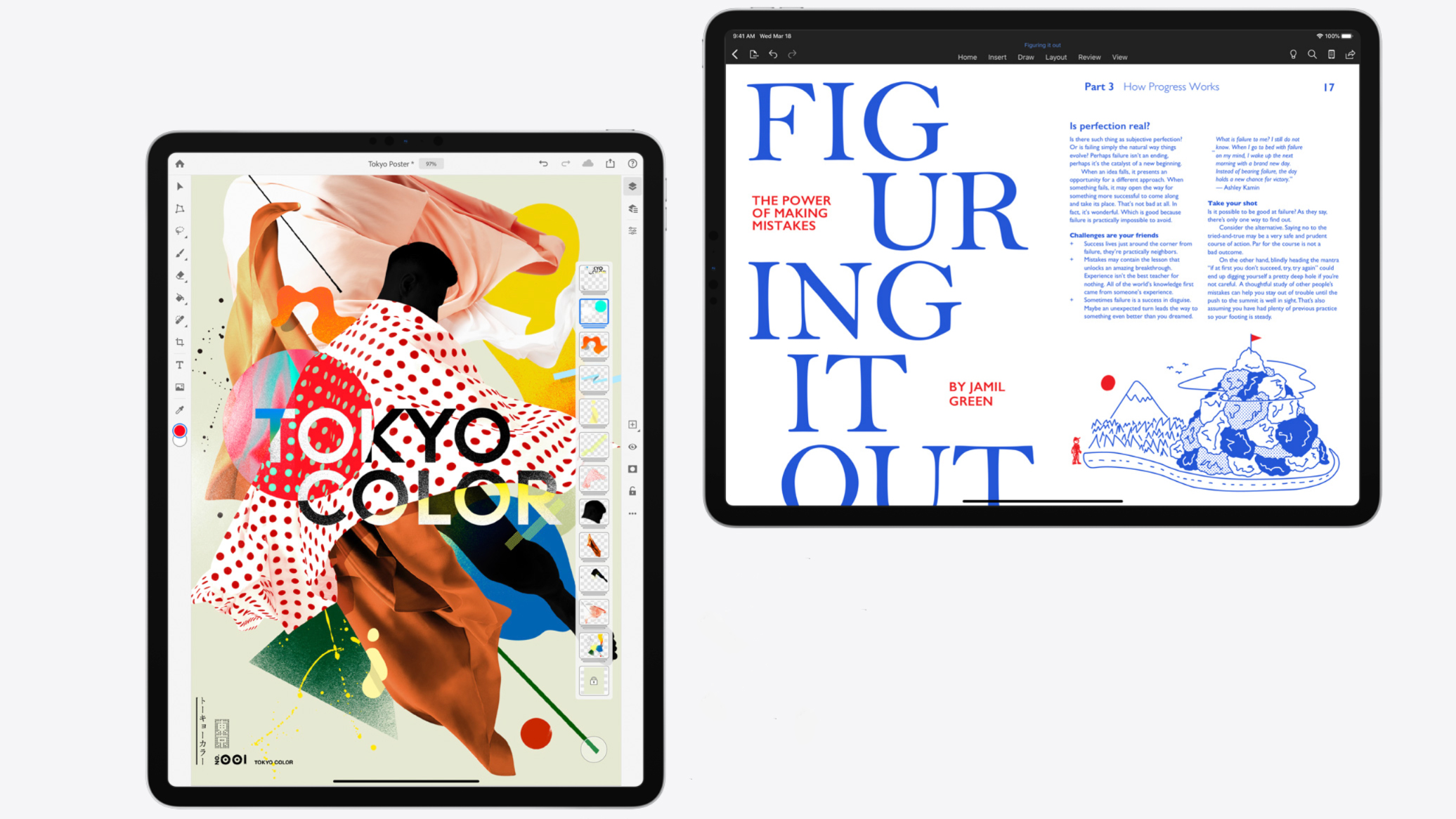
Clearly, the iPad Pro (2020) is the obvious choice here for professionals. That’s without mentioning the fact that it has more storage capacity, with 128GB being the lowest and 1TB being the highest storage option. The iPad Air (2020), on the other hand, starts at a somewhat measly 64GB and offers 256GB of storage for its highest configuration.
To be fair to the Air, if you aren’t a professional and don’t really need all that power and storage space, it should be more than enough to see you through your tablet needs – whether those include taking and light editing photos or videos or simply streaming your favourite shows and casual gaming.
iPad Air (2020) vs iPad Pro (2020): Verdict
Both the iPad Air (2020) and the iPad Pro (2020) are powerful and versatile tablets with terrific feature sets. However, you need to only look at the differences in their features and specs to realise that they target different markets.
The Air may be a premium, if mid-range leaning, device. However, it’s better suited for the more casual users with more discerning tastes or perhaps some creative inclinations – more for hobbies than pros. It’ll also serve as a great accessory for professionals who need a tablet for performing less demanding tasks like sending emails and typing up a document while on the go, as well as some light designing, editing, and music production. The A14 chip can handle a lot, undoubtedly, but it's still not quite as ready for pro applications as the chip in the iPad Pro.
The iPad Pro's innards are built exactly for demanding tasks such as video editing and a feature set made for creative endeavours. Not everyone will be able to use it as their main computer, but its flexibility means there are lots of situations where creative pros will much prefer it to a laptop.

Michelle Rae Uy is a tech and travel journalist, editor and photographer with a bad case of wanderlust. She is a regular contributor for IGN, TechRadar and Business Insider, and has contributed to Thrillist, Paste Magazine, Nylon, Fodor's and Steve's Digicams. Living mainly in California with her adorable cats, she splits her time between Los Angeles, London and the rest of the world.